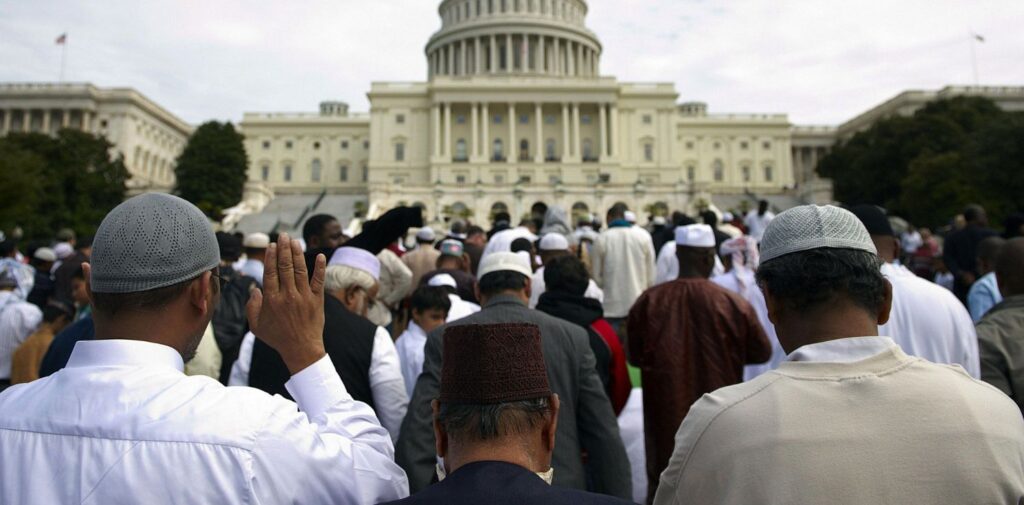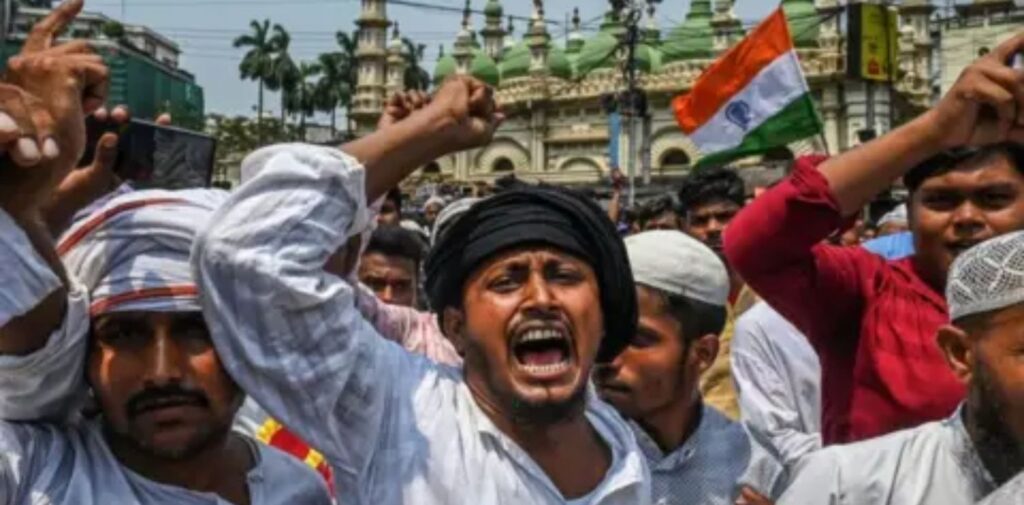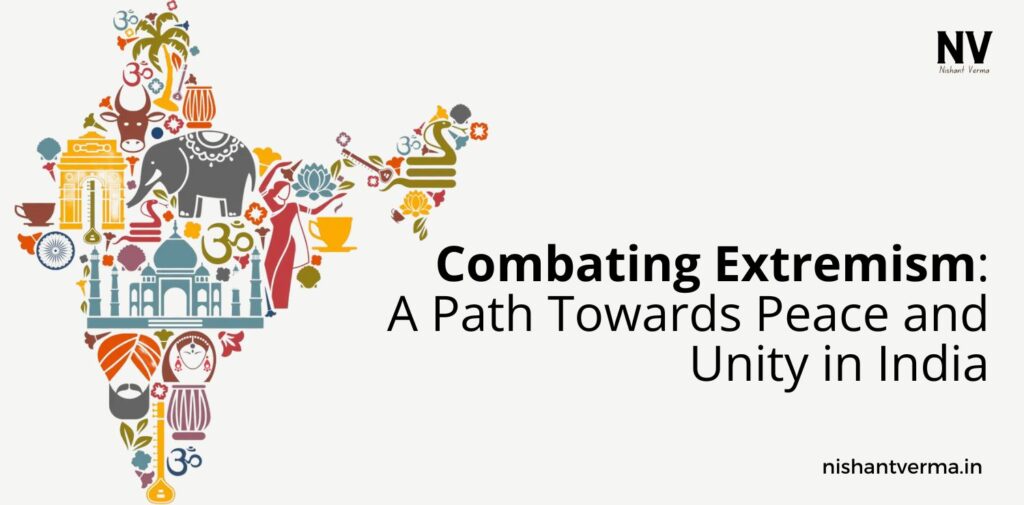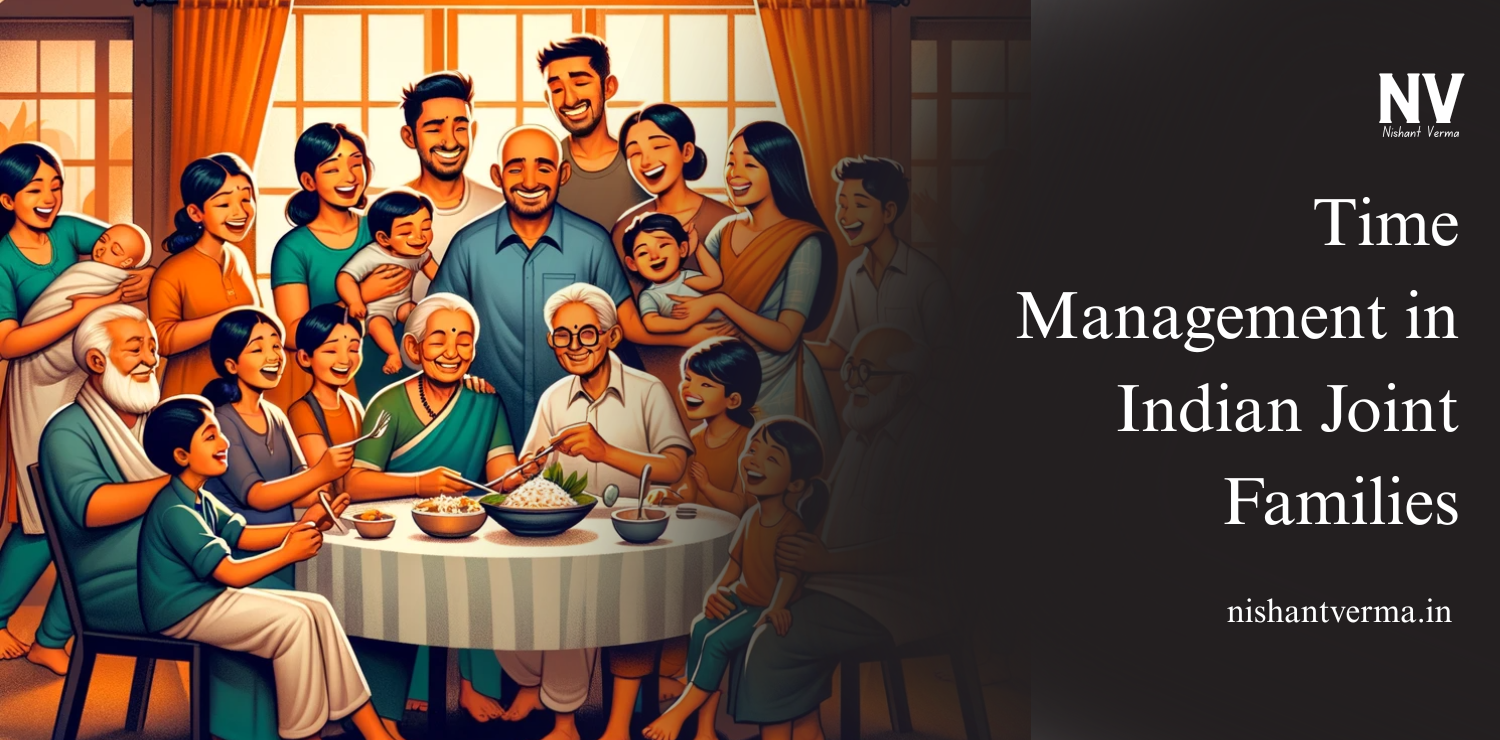Introduction
India, as a diverse and multi-religious nation, has always celebrated its variety of faiths, cultures, and traditions. However, in recent times, there has been a disturbing trend of certain groups and individuals demonizing entire religions, particularly Islam, based on the actions of a small number of extremists. This dangerous narrative not only creates divisions in society but also weakens the fabric of the nation. While Combating Extremism and radicalization need to be tackled firmly, blaming an entire religion for the actions of a few is not the solution. In this article, we will explore how India can combat extremism without downgrading or vilifying any religion, and why unity, justice, and responsible action are key to maintaining national harmony.
The Problem of Generalizing Entire Communities
One of the biggest issues that India, and many countries across the world, face today is the tendency to generalize the actions of a few individuals and project them onto entire communities. This happens particularly when it comes to discussions about Muslims and Islam. Some people argue that radical ideologies or campaigns like “love jihad” are representative of the entire Muslim community, which is both factually incorrect and dangerous.
Islam, like any other religion, is followed by millions of peaceful people who contribute positively to society. However, there are those who misuse religion as a tool to promote their own extremist agendas, and it is these individuals who must be held accountable—not the entire faith. Stereotyping an entire religion only leads to further alienation and resentment, which in turn can fuel more division and radicalization.

Extremism Is Not Exclusive to Any One Religion
It is essential to recognize that extremism is not exclusive to any single religion. Extremists exist in every religion, culture, and ideology, and history is replete with examples of violence committed in the name of different faiths. When people focus only on the actions of extremists within one religion, such as Islam, they ignore the broader picture of global extremism. This one-sided approach breeds hatred and intolerance, which can lead to discrimination and violence against innocent people.
India has always stood as a nation that believes in secularism, where all religions are treated with respect. By allowing the actions of a few extremists to shape perceptions of an entire community, we risk losing the essence of what makes India unique—its inclusivity.
What Does Extremism Look Like?
To effectively address extremism, it’s important to understand what it looks like and how it operates. Extremism is not a reflection of religion but of political and ideological motivations. Radical groups may misuse religious rhetoric to justify their actions, but their motivations often stem from power, control, or socio-political grievances, not religious teachings.
There are fringe elements in every religion that may try to spread radical ideologies, but they are not representative of the broader community. In Islam, like any other faith, the vast majority of people practice peacefully and contribute to the wellbeing of society. It is important to focus on combating radical elements rather than generalizing and stigmatizing the entire religion.
The Dangers of Islam and Muslims: Combating Extremism
India is home to millions of Muslims who have lived in peace and harmony with people of other faiths for centuries. By demonizing Islam and perpetuating false narratives about the Muslim community, we run the risk of creating deep divisions that undermine the unity of the nation. Instead of fostering an atmosphere of mistrust and hatred, India should focus on the values of pluralism and secularism that are enshrined in its Constitution.
It is also crucial to understand that when an entire community feels targeted or discriminated against, it only fuels further resentment and marginalization. This can create an environment where extremist ideologies become more appealing to some individuals who feel alienated by society. By marginalizing a group, we are essentially doing the extremists’ job for them.

Steps India Should Take to Address Extremism Without Demonizing Religion
- Target Extremism, Not Religion:The Indian government and law enforcement agencies need to focus on identifying and prosecuting individuals and groups involved in extremist activities. This should be done without making broad generalizations about a particular religion. Law enforcement must operate with fairness, ensuring that justice is served to individuals involved in illegal activities, regardless of their religion or background.
- Promote Religious Harmony:Instead of sowing seeds of division, the government and civil society should actively promote interfaith dialogue and religious harmony. This can be done through educational programs, community initiatives, and media campaigns that focus on mutual respect and understanding.
- Strengthen Legal Frameworks Against Hate Speech:India should enforce stronger laws against hate speech and incitement to violence. Those who spread misinformation or promote violence against any religious community should be held accountable. Hate speech only exacerbates tensions and fuels violence, and there should be zero tolerance for such rhetoric.
- Education and Awareness Campaigns:Misinformation about religions, particularly Islam, has contributed to the rise in anti-Muslim sentiment in many parts of the world, including India. The government and NGOs should invest in educational and awareness campaigns to dispel myths and promote accurate information about different religions, helping to break down stereotypes.
- Preventing Radicalization Through Inclusion:Extremism often takes root in communities where people feel marginalized or excluded from mainstream society. The Indian government should work to ensure that all communities feel included and represented in national life. This can be achieved by providing equal opportunities for education, employment, and political participation, which can reduce the appeal of extremist ideologies.
- Media Responsibility:The media plays a crucial role in shaping public perceptions. Irresponsible reporting that sensationalizes issues or demonizes a particular community contributes to the problem. The media should focus on facts and promote responsible journalism that fosters unity, rather than inflaming tensions.
- Interfaith Dialogue and Peace Initiatives:Interfaith initiatives that bring together people from different religious backgrounds to work on common goals—such as poverty alleviation, education, and healthcare—can go a long way in building trust and understanding between communities. These initiatives should be encouraged at both the grassroots and national levels.
Conclusion: Building a United and Just India
While Combating Extremism poses a real threat to national security, combating it by demonizing an entire religion is not the solution. India has always been a land of diverse cultures, languages, and religions. Its strength lies in its unity amid diversity. By promoting fairness, justice, and mutual respect, India can tackle extremism without compromising its values of inclusivity and secularism.
As a nation, we must resist the temptation to blame entire communities for the actions of a few. Instead, we should focus on addressing the root causes of extremism while ensuring that our actions do not alienate or stigmatize any group. Only by fostering an environment of unity and cooperation can India continue to thrive as a peaceful and prosperous nation.




